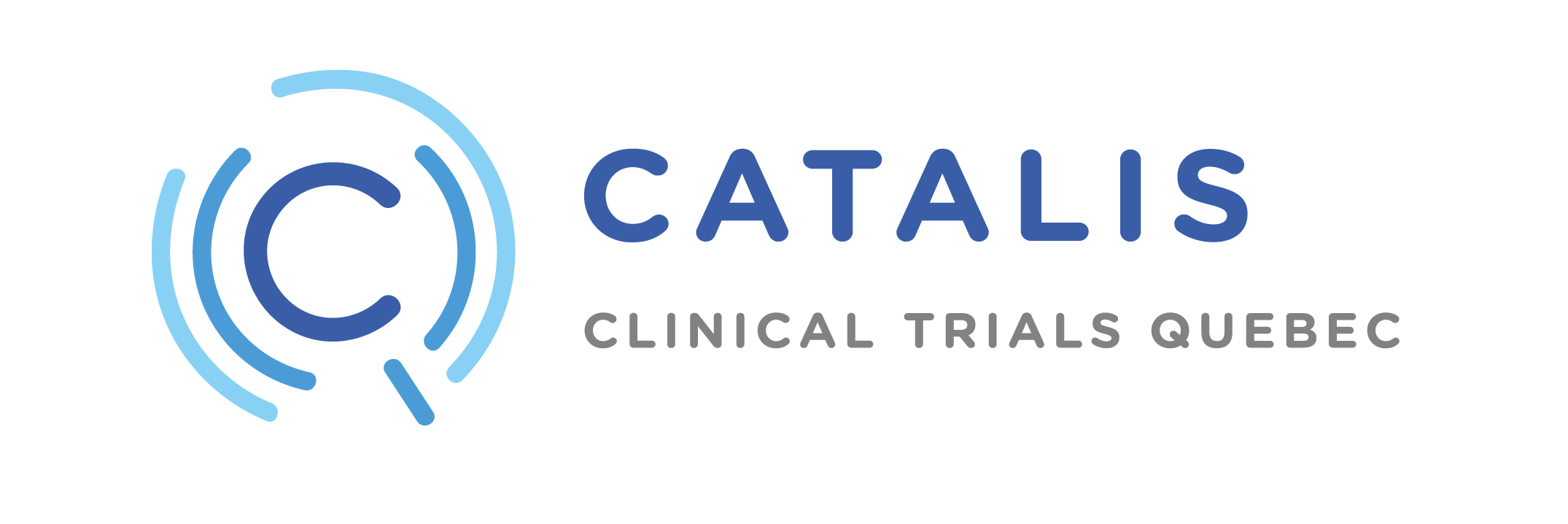From Creating Operational and Structural Bases to Establishing New Services: CATALIS Québec Reached New Heights in 2021
Now that 2021 has come to an end, I want to say how proud I am of CATALIS Québec’s achievements. I am impressed by our growing team’s accomplishments and the tremendous work its members did in a difficult context. We had to keep adjusting to the constraints of yet another year under the pall of the pandemic. Time and time again, we have been reminded of clinical research’s importance in bringing innovative and promising treatments to patients.
Operating as a forum for sharing and collaboration and a catalyst for positive change for patients and the entire network, CATALIS Québec has been bringing together a broad range of public and private stakeholders since 2017 to improve the processes which accelerate the discovery of innovative treatments. CATALIS’s mandate was fully actualized in 2021, mainly due to a financing agreement awarded by the Ministry of Economy and Innovation (MEI) and finalized on February 16. This substantial funding has allowed our organization to launch its new 2020-2024 strategic plan and provides it with the means it needs to reach its goals.
FAST TRACK Evaluation Service’s Successful Pilot Project
There is no doubt that the year’s crowning achievement was December’s announcement of the successful first pilot project of CATALIS’s FAST TRACK evaluation service. The project has seen 4 of our health network’s institutions ranked among the 5 fastest sites in the world in a randomized multi-centre study conducted at more than 1,000 sites in 40 countries by pharmaceutical company Novartis Canada. A true success story!
Through its FAST TRACK evaluation service, CATALIS has shown that it is possible to reduce the approval time of an industry-financed clinical trial by almost 75%. CATALIS will continue the pilot phase of the service with its public and private members until the fall of 2022 before opening its service to interested non-member companies.
Key Transformations Within CATALIS
Thanks to its new financing, CATALIS implemented a patient component within its network – an essential element for its mandate’s success and one in which all partners want, first and foremost, the patient’s voice to be heard in all stages of clinical research. As such, 11 patient associations representing various medical conditions have joined the CATALIS network and are now part of its new Patient Advisory Committee. This group seeks to develop services to help patients and their families understand and access clinical trials more easily. In addition, a new Scientific Advisory Committee was created to identify the issues facing clinician-researchers and obtain their recommendations on which medical, scientific, and innovation solutions should be implemented.
To increase the focus on patients, the CATALIS board of directors has recently named a new member, Me Jean Groleau, as its Vice-President and Administrator. As a parent to children with a rare disease, Charlevoix-Saguenay ataxia, and founder (along with his wife) of the Ataxia Charlevoix-Saguenay Foundation, Me Groleau understands better than anyone the importance of clinical research.
In addition to our team of eight employees and a network which includes 11 new patient associations, we will soon have the pleasure of welcoming 23 new public institutions from the health and social services network, as well as new pharmaceutical partners, to our network.
A People-First Approach Puts the Patient at the Heart of CATALIS’ Mission
One of the goals of clinical research is to develop new drugs and therapies for patients who do not currently have a therapeutic option that can provide them with an acceptable quality of life. The CATALIS network mobilizes the ecosystem’s stakeholders around this goal. By working together, we want to create an environment in which impacted patients instinctively choose to be involved in research and participate in clinicals trials.
Over the course of this year, we are looking forward to announcing the implementation of two new CATALIS services: a clinical research information hub and a personalized clinical trial support service for patients and clinicians.
To ensure that patients can easily access clinical trials in an environment adapted to their needs, CATALIS was also asked for its input on Bill 19 (An Act respecting health and social services information) and Bill 96 (An Act respecting French, the official and common language of Quebec). Going forward, it will continue to offer its support to various government ministries for any initiative that involves clinical research and patients’ well-being.
While 2021 was the year we built our operational and structural foundations, namely through financing by the MEI and collaborations with the Ministry of Health and Social Services and all our members and partners, 2022 will be the year we expand our services. By using new tools and more efficient processes, we will optimize the administrative procedures that support the implementation of promising clinical trials in an environment that meets the institutions’ and the industry’s needs and protects patients.

